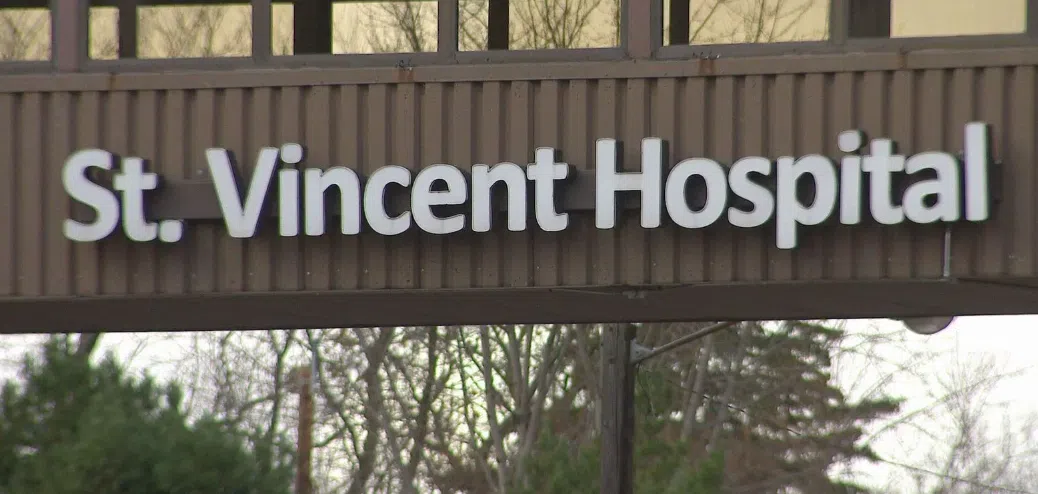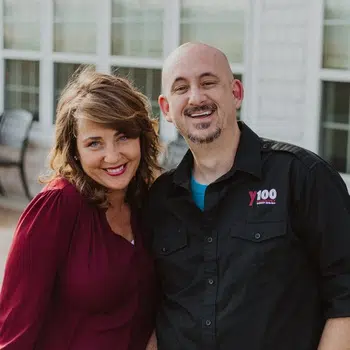GREEN BAY, WI (WTAQ-WLUK) – Sexual violence is a reality thousands in our community have to deal with, but the Sexual Assault Nurse Examiner program — otherwise known as SANE — is empowering victims, while still offering the medical support they need after a sexual violence encounter.
A room in the back of the emergency department at Green Bay’s St. Vincent Hospital may look like an ordinary exam room, but for victims of sexual violence, it’s a safe space.
“[I] know that I can’t take away what happened to them, but I can make this moment in time a lot easier for them as they’re having to go through this,” says Dana Stueber, the clinical coordinator of the HSHS St. Vincent SANE program.
“It is nurses who are specially trained in caring for patients that are reporting sexual violence,” Stueber says.
Here, Stueber says the patient is in charge — everything is on their terms.
“You’re remembering they’re traumatized. You wanna make sure you give them back the power and control that was taken away from them,” she explains.
If they are unsure about reporting the assault they’ve experienced, SANE providers give them the choice to decide if they want DNA collected from them during their exam.
“Every time you shower, eat, drink, all those activities — every time you do those, that takes away the DNA that might be available on your body, and so we give them the option of having evidence collected and the hospital will send that to the crime lab,” Stueber says.
Even if the patient doesn’t immediately report their assault, the crime lab will hold onto that evidence for the next 10 years.
“They have the choice to receive a SANE exam and they have the choice to report to law enforcement, or they have the choice not to. But giving victims that choice is an essential part of healing from their victimization,” says Holli Fisher with the Sexual Assault Center at Green Bay’s Family Services.
For those who arrive at the SANE exam knowing they will make a police report, SANE providers will help the patient contact their local jurisdiction and will contact the Sexual Assault Center if an advocate hasn’t already been contacted. That way, the victim only needs to share their story once.
For those under 18, the state of Wisconsin is mandated to report the SANE exam to authorities and the crime lab.
The sexual assault kits used during evidence-gathering exams, also known to many as a rape kit, include Q-tips and envelopes to separate and label the DNA that has been collected. The SANE nurses will also document injuries with a camera.
“The DNA could come from the lips, the mouth, it could come from a bruise, fingertip-like bruises, from head to toe,” Stueber says.
This year marks 20 years of the St. Vincent SANE program. Stueber has been here for 18 of them, and has seen it all: men, women and children.
“Sexual violence does not discriminate on gender, race, your prominence in the community,” she says. “Last year, we had 229 patient encounters. I call them encounters because not every single one of them gets an exam or evidence collection. 11% were male and the rest were female.”
The biggest misconception about sexual violence, she says, is injuries. Last year, 63% of those she treated had no injury at all.
I think that makes it harder for victims to come forward, because if they don’t see an injury, they don’t think anybody’s going to think anything happened to them.
Stueber and her team hope that idea changes. And injuries or not, the team has a path and treatment plan and will help provide the next steps and resources for everyone.
“Our community is extremely lucky to have a Sexual Assault Nurse Exam program that operates 24/7 because in many communities throughout Wisconsin, they don’t have that option,” says Fisher.
While the SANE team typically has a 120-hour collection window after an assault, victims and patients can still reach out and get medical resources, a wellness exam and more from the SANE team even after that five-day period.
Stueber says she’s proud to be part of a team that advocates so passionately for those impacted by sexual violence, and she doesn’t plan to stop anytime soon.
“It’s happening. So if I’m able to do something that makes them more comfortable, then I feel like I’m making a difference,” she says.
If you need support and assistance following a violent sexual experience, you can call the Sexual Assault Center at (920) 436-8899. Details about medical exams through the SANE program can be found here.










Comments